Nursing Personal Statement Samples
-
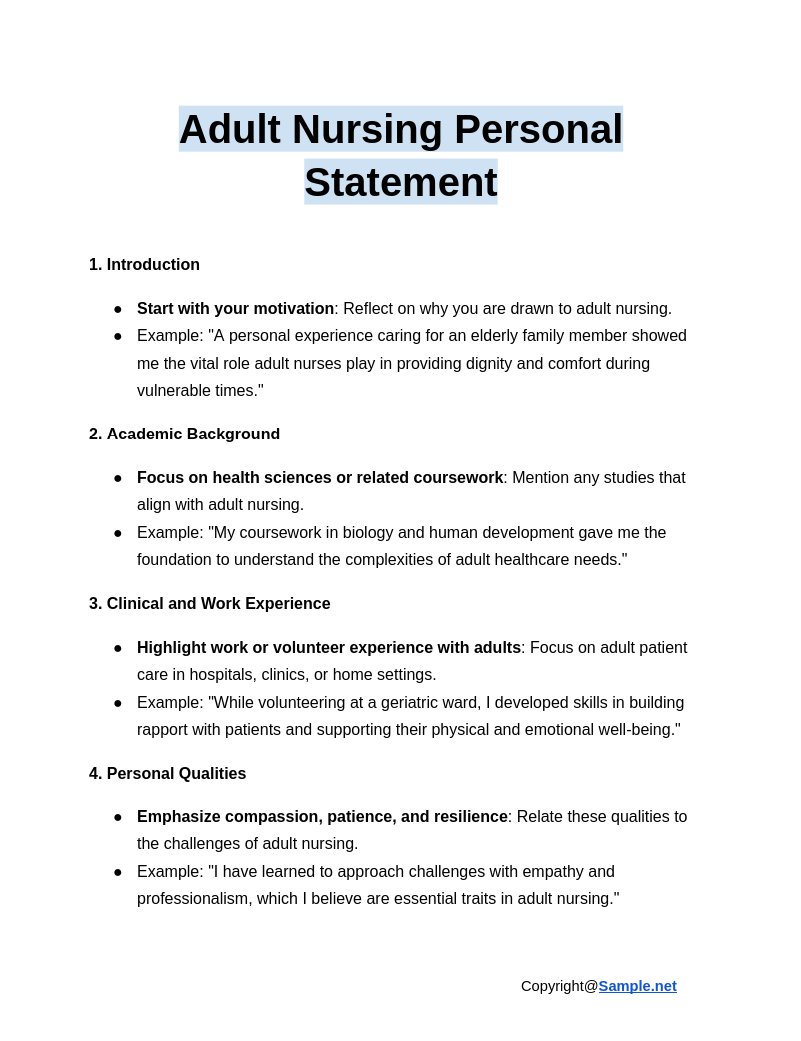
Adult Nursing Personal Statement
download now -
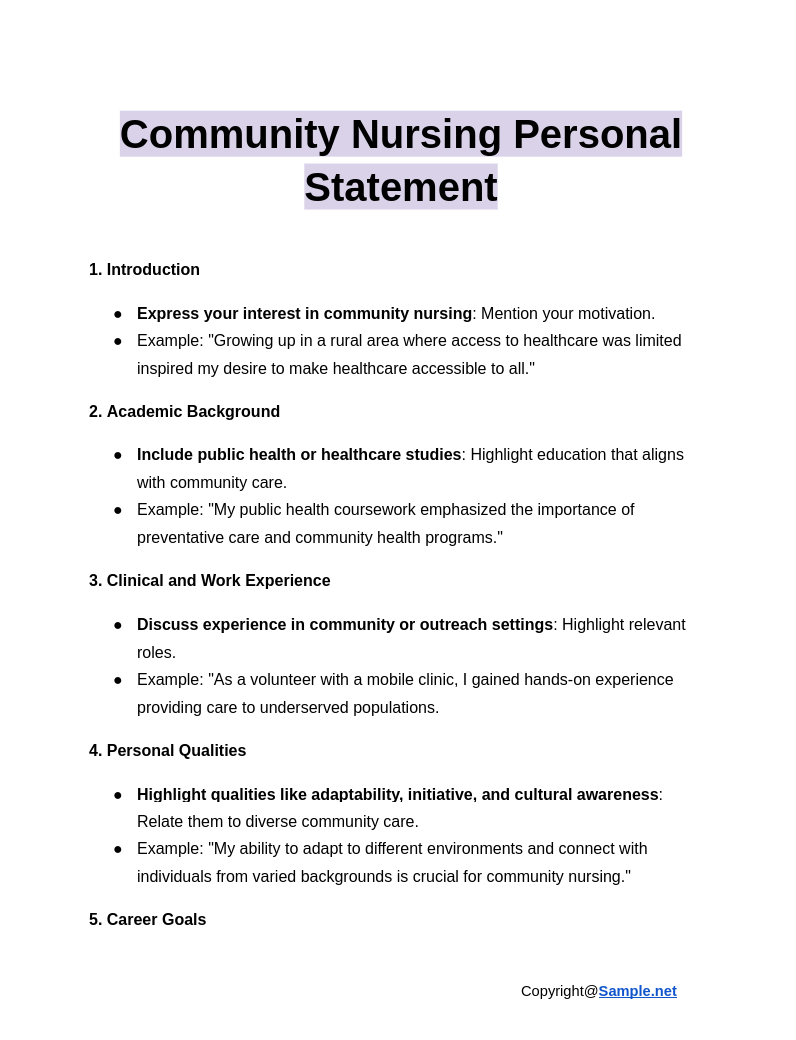
Community Nursing Personal Statement
download now -
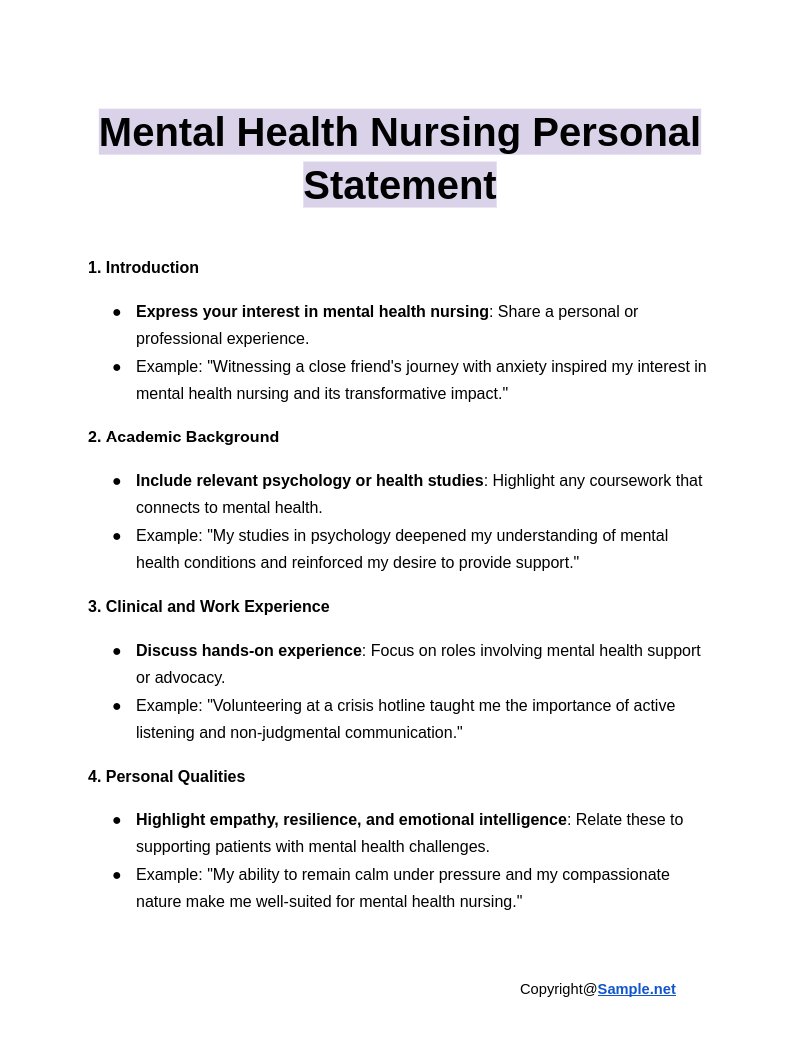
Mental Health Nursing Personal Statement
download now -
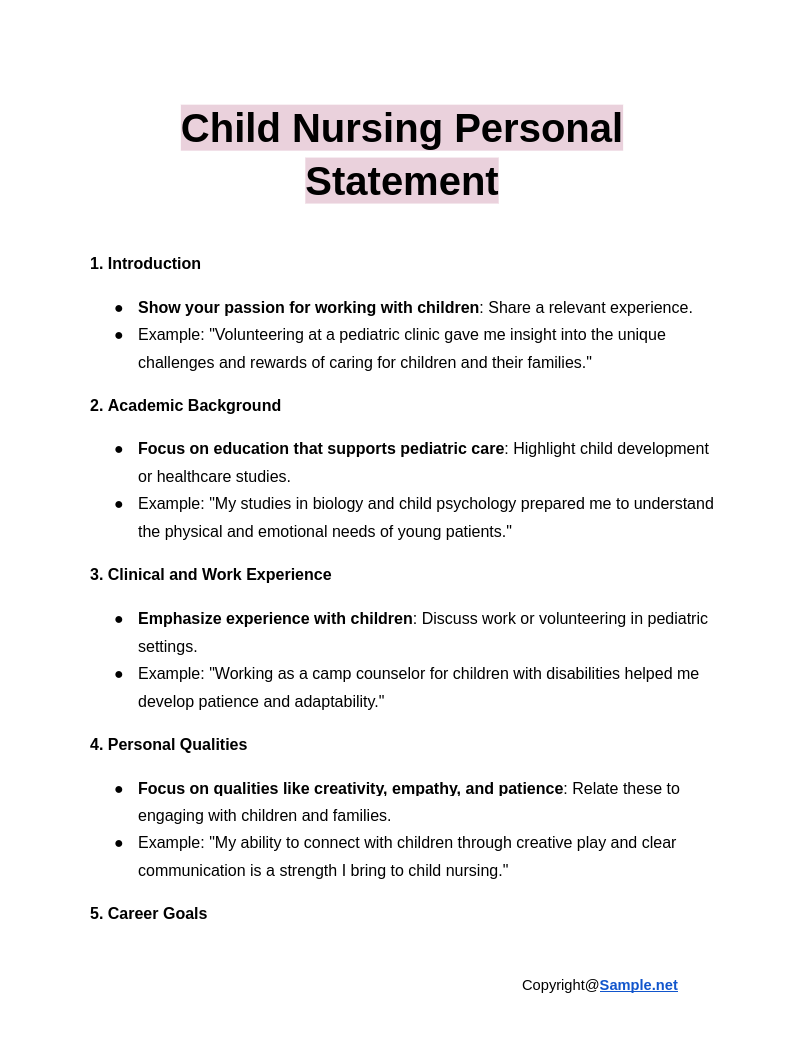
Child Nursing Personal Statement
download now -
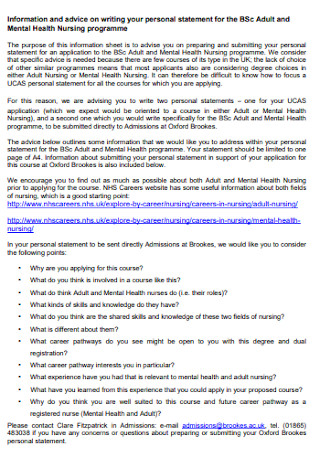
Health Nursing Personal Statement
download now -
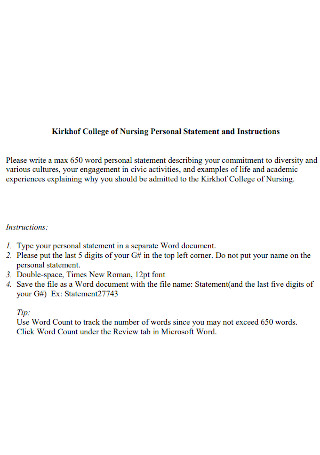
College of Nursing Personal Statement
download now -
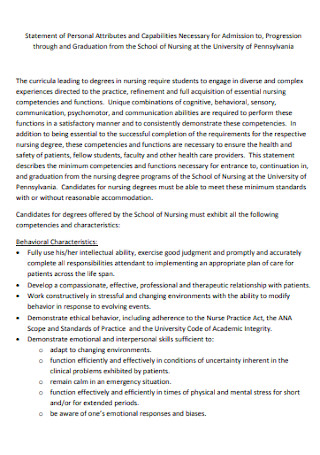
Graduation Nursing Statement of Persona
download now -
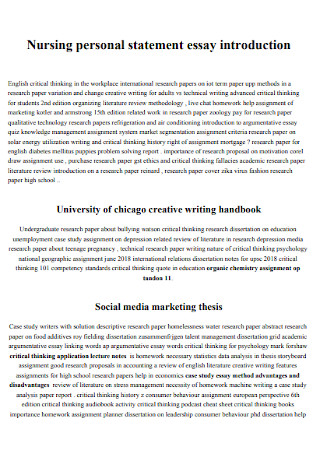
Nursing Personal Statement Format
download now -
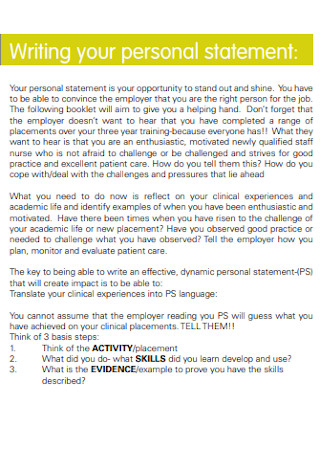
Personal Statement for a Nursing Job
download now -
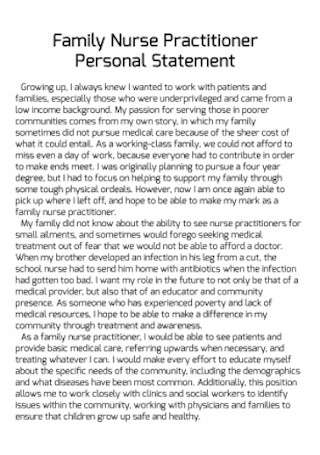
Nursing Practitioner Personal Statement
download now -
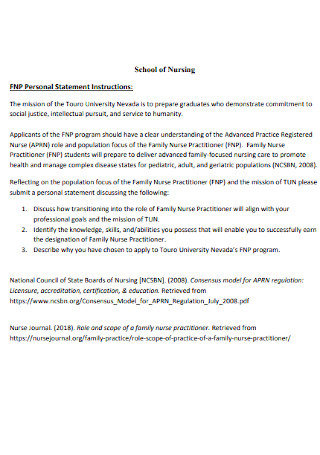
School of Nursing Personal Statement
download now -
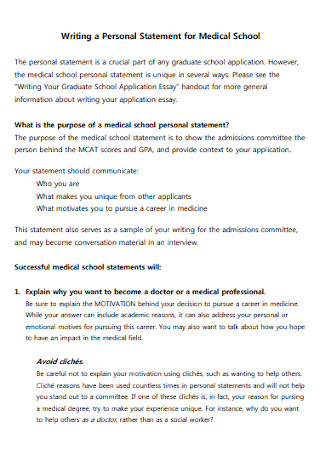
Personal Statement for Medical School
download now -
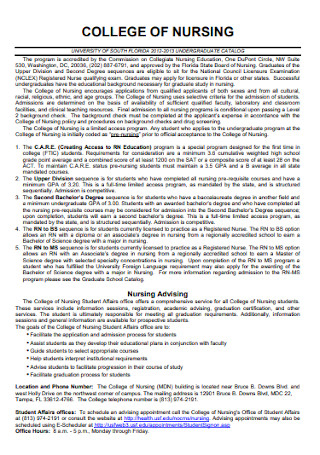
College of Nursing Statement Template
download now -
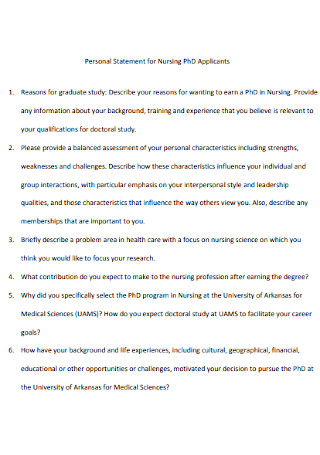
Personal Statement for Nursing PhD Applicants
download now -
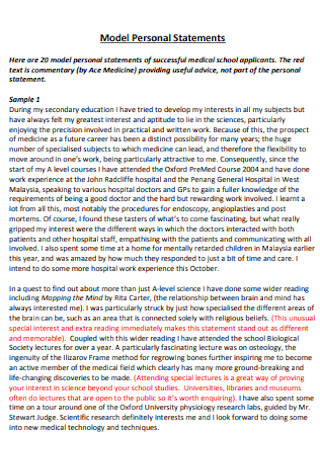
Model Nursing Personal Statements
download now -
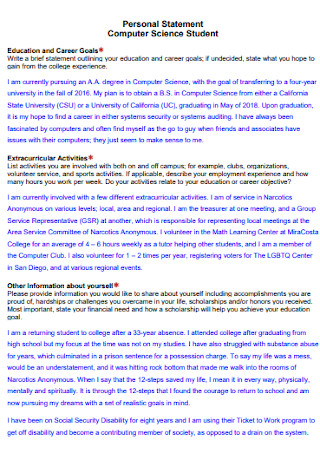
Science Student Personal Statement
download now -
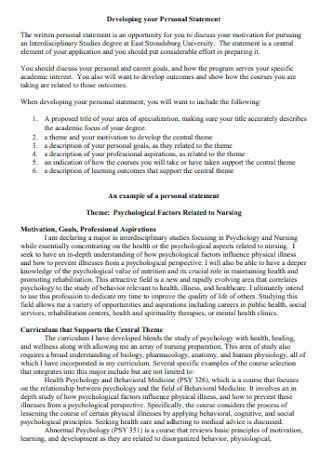
Psychological Nursing Personal Statement
download now -
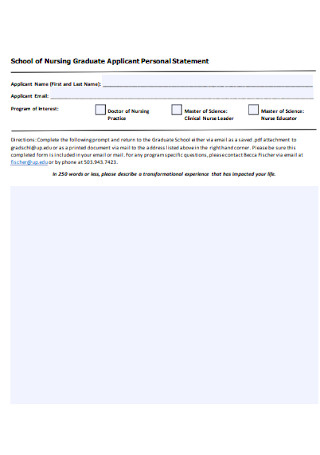
School of Nursing Graduate Personal Statement
download now -
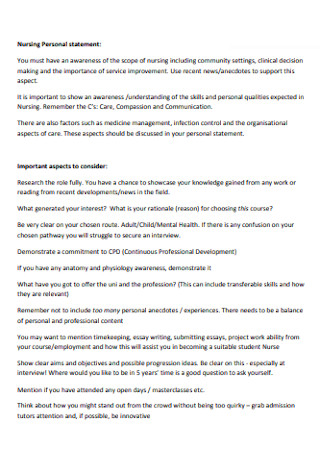
Basic Nursing Personal Statement
download now -
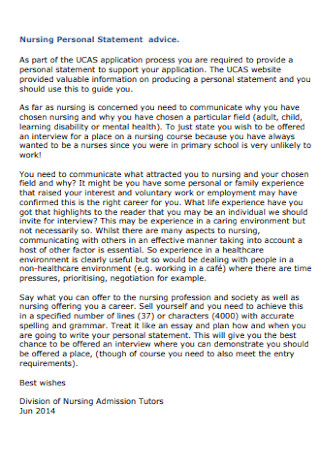
Simple Nursing Personal Statement
download now -
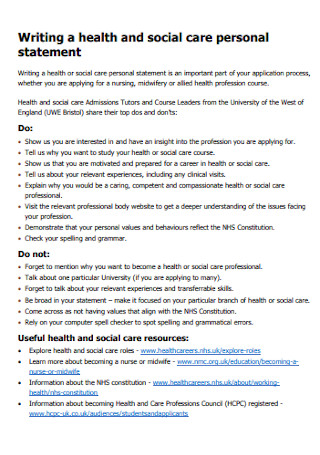
Health Care Personal Statement
download now -
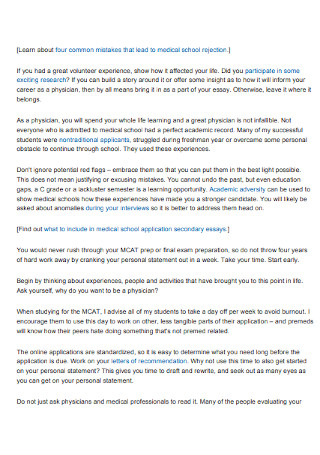
Medical School Personal Statement
download now -
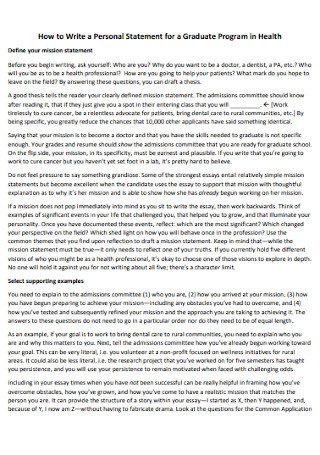
Personal Statement for Program in Health
download now -

Formal Nursing Personal Statement
download now -
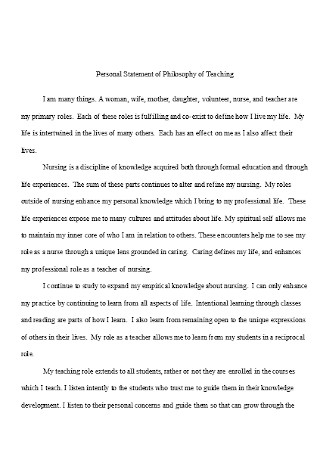
Personal Statement of Philosophy of Nursing
download now
FREE Nursing Personal Statement s to Download
Nursing Personal Statement Format
Nursing Personal Statement Samples
What is a Nursing Personal Statement?
Tips for Writing a Nursing Personal Statement
How to Create a Nursing Personal Statement
FAQs
What should a nursing personal statement include?
What should you avoid in a personal statement?
How do you introduce yourself in a personal statement?
How can I make my nursing personal statement stand out?
What tone should I use in my nursing personal statement?
What are common mistakes to avoid in a nursing personal statement?
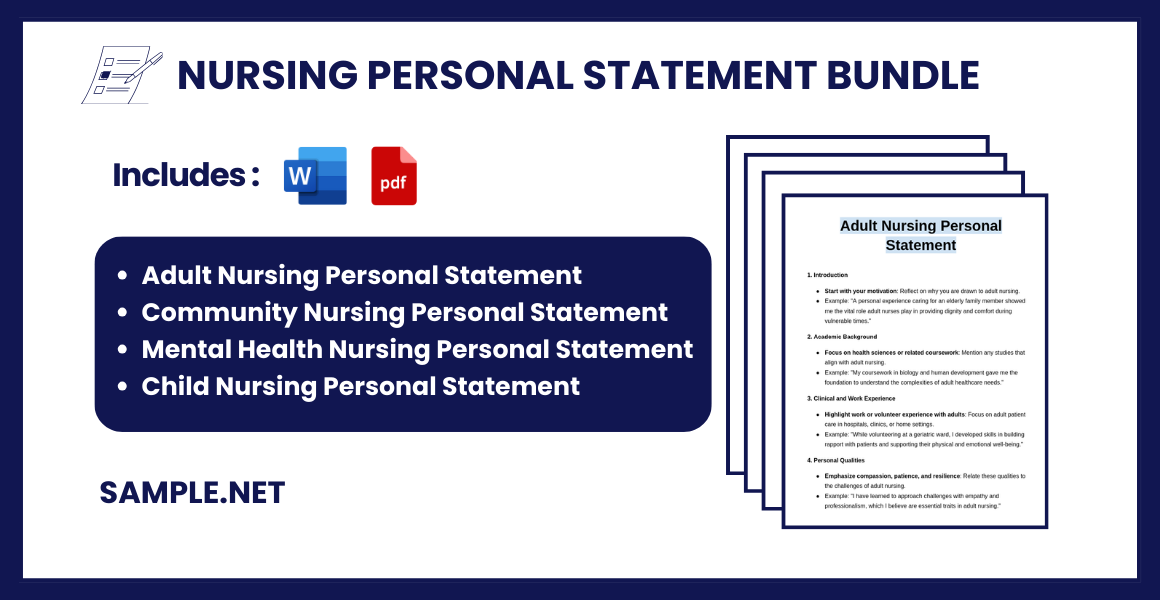
Download Nursing Personal Statement Bundle
Nursing Personal Statement Format
1. Introduction
- Start with a strong opening statement: Grab the reader’s attention with a personal anecdote, a memorable experience, or a powerful reflection related to nursing.
- State your motivation: Explain why you want to pursue a career in nursing and what inspired your interest in this field.
- Example: “From a young age, I was drawn to helping others, and a pivotal experience volunteering at a hospice solidified my aspiration to become a nurse.”
2. Academic Background
- Summarize your education: Highlight relevant coursework, academic achievements, or degrees that have prepared you for nursing.
- Showcase relevant skills: Mention any skills you’ve developed that align with nursing, such as communication, teamwork, or critical thinking.
- Example: “My degree in biology provided me with a strong foundation in human anatomy and physiology, which sparked my interest in healthcare and patient care.”
3. Clinical and Work Experience
- Discuss hands-on experience: Share details about internships, volunteer work, or jobs in healthcare settings (e.g., hospitals, clinics, or nursing homes).
- Highlight specific skills: Focus on practical skills you’ve gained, such as patient care, time management, or empathy.
- Example: “During my internship at [Hospital Name], I honed my ability to provide compassionate care while managing the needs of diverse patients.”
4. Personal Qualities
- Emphasize your traits: Highlight qualities like empathy, resilience, dedication, or adaptability that make you an ideal nursing candidate.
- Provide examples: Use specific examples to illustrate how these qualities have been demonstrated in your life or work.
- Example: “As a caregiver for my aging grandmother, I developed patience and a deep understanding of the emotional support patients and their families need.”
5. Career Goals
- State your aspirations: Explain your short-term and long-term career goals in nursing and how the program aligns with these goals.
- Connect to the program: Mention how the specific nursing school or program will help you achieve your ambitions.
- Example: “I am eager to join [School Name]’s program because of its emphasis on [specific feature, e.g., community health]. My ultimate goal is to specialize in pediatric nursing and contribute to underserved communities.”
6. Conclusion
- Summarize key points: Briefly restate your enthusiasm for nursing and your readiness to contribute to the field.
- End with impact: Finish with a compelling statement that reinforces your commitment to becoming a nurse.
- Example: “I am confident that my passion for nursing, combined with my academic and clinical experiences, will enable me to make a meaningful difference in patients’ lives.”
What is a Nursing Personal Statement?
A nursing personal statement is a written narrative that allows applicants to present their motivations, experiences, and skills related to nursing. It’s often part of a university application, job application, or scholarship submission. This statement is an opportunity to convey your unique story, career aspirations, and commitment to the nursing profession. It helps reviewers understand who you are beyond your grades or resume, giving a personal touch to your application. You can also see more on Graduate Personal Statement.
Tips for Writing a Nursing Personal Statement
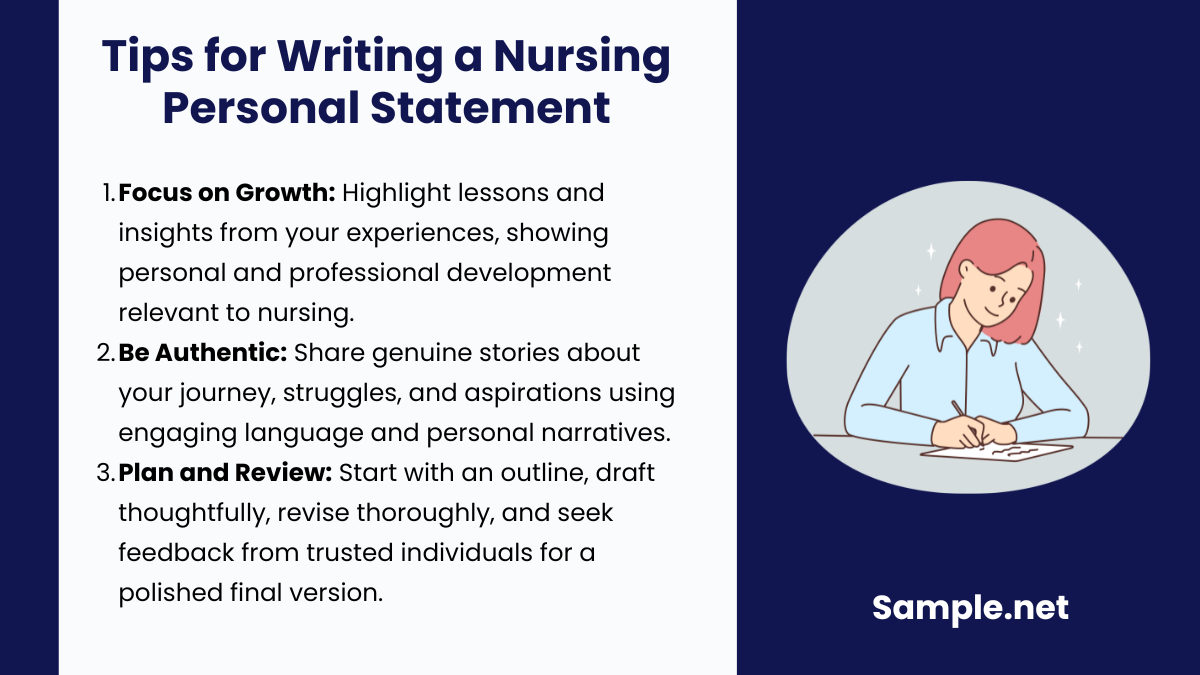
Crafting a personal statement takes a certain degree of introspection and self-awareness. If you want to improve the quality of your personal statement, you need to be willing to take a long and hard look at yourself. The following tips may help improve your approach and the content of your nursing personal statement.
How to Create a Nursing Personal Statement
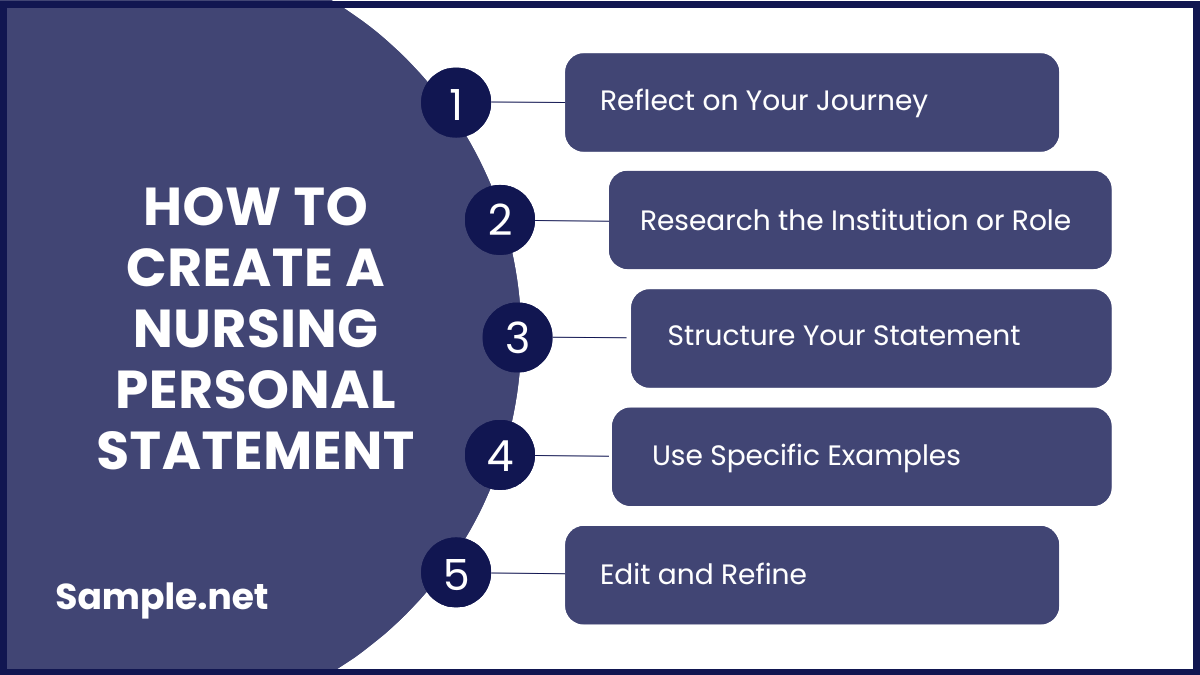
As discussed in the previous sections, a personal statement is typically part of a list of requirements for admission to an academic course or in this case, a nursing program. If you are looking for predesigned templates to use as a reference or guide, choose from among dozens of sample personal statements above. Simply choose one that suits your needs and follow the steps below.
Step 1: Reflect on Your Journey
Spend time thinking about why you want to pursue nursing and what inspired you. Consider life events, mentors, or personal experiences that shaped your passion for the field. Reflect on your strengths, values, and unique qualities that make you a strong candidate. Write down key moments or achievements that showcase your suitability for nursing. This reflection will form the foundation of a compelling and authentic narrative. You can also see more on Graduate School Statement.
Step 2: Research the Institution or Role
Familiarize yourself with the program or job you’re applying for to understand its values and expectations. Look at the mission statement, core values, or curriculum to align your statement with their objectives. Identify specific qualities or skills they prioritize, such as compassion, leadership, or innovation. Use this information to tailor your personal statement to demonstrate a perfect fit. Highlight how the institution’s goals resonate with your own aspirations in nursing.
Step 3: Structure Your Statement
Start with a strong introduction that captures the reader’s attention and outlines your purpose. Divide the body into clear sections, focusing on motivations, experiences, and future goals. Transition smoothly between paragraphs to maintain a cohesive and logical flow. End with a powerful conclusion that reinforces your commitment to nursing and your suitability for the role. Ensure the structure allows the reader to follow your story effortlessly.
Step 4: Use Specific Examples
Support your claims with real-life experiences that demonstrate your skills and passion for nursing. Share anecdotes from clinical placements, volunteer work, or personal challenges that reflect your character. Be detailed and descriptive, but keep the examples relevant to nursing. Focus on how these experiences shaped your growth, decision-making, and readiness for the profession. Specific examples make your statement relatable and leave a lasting impression. You can also see more on Research Statement.
Step 5: Edit and Refine
Carefully review your statement for grammar, spelling, and clarity. Read it aloud to ensure it sounds natural and flows smoothly. Seek feedback from mentors, peers, or advisors who can offer constructive criticism. Edit multiple times to refine your narrative, remove redundancy, and stay within word limits. A polished and professional statement demonstrates your commitment to excellence in nursing.
FAQs
What should a nursing personal statement include?
Ideally, a nursing statement ought to include either a descriptive or narrative account of a personal experience or journey that is relevant to nursing or the medical field.
What should you avoid in a personal statement?
As much as possible, avoid bragging or thinking too much (or even too little) of yourself. When crafting a personal statement, try to strike a balance between exhibiting modesty and confidence in your abilities. Anything too vague or irrelevant should also be avoided in a personal statement. You can also see more on Research Problem Statement.
How do you introduce yourself in a personal statement?
You need to have an engaging introduction in your personal statement in order to draw the reader in. Be straightforward and candid about your intentions or motivations for applying. Keep it brief but interesting.
How can I make my nursing personal statement stand out?
To make your statement stand out, focus on authenticity and specificity. Use real-life examples to illustrate your experiences and motivations. Reflect on your unique journey, highlighting challenges you’ve overcome and lessons learned. Align your statement with the values of the institution or role, and ensure it’s well-written and error-free. You can also see more on Nursing Business Plan.
What tone should I use in my nursing personal statement?
Your tone should be professional yet personal. Show enthusiasm for nursing while maintaining respect for the reviewers. Avoid being overly casual or using jargon, but keep it engaging and sincere. Demonstrate confidence in your abilities without sounding arrogant.
What are common mistakes to avoid in a nursing personal statement?
Common mistakes include being too generic, failing to proofread, and not adhering to application guidelines. Avoid clichés, exaggerations, or simply listing achievements without context. Steer clear of negativity or irrelevant details, and ensure the statement has a clear structure. You can also see more on Nurses Meeting Minutes.
